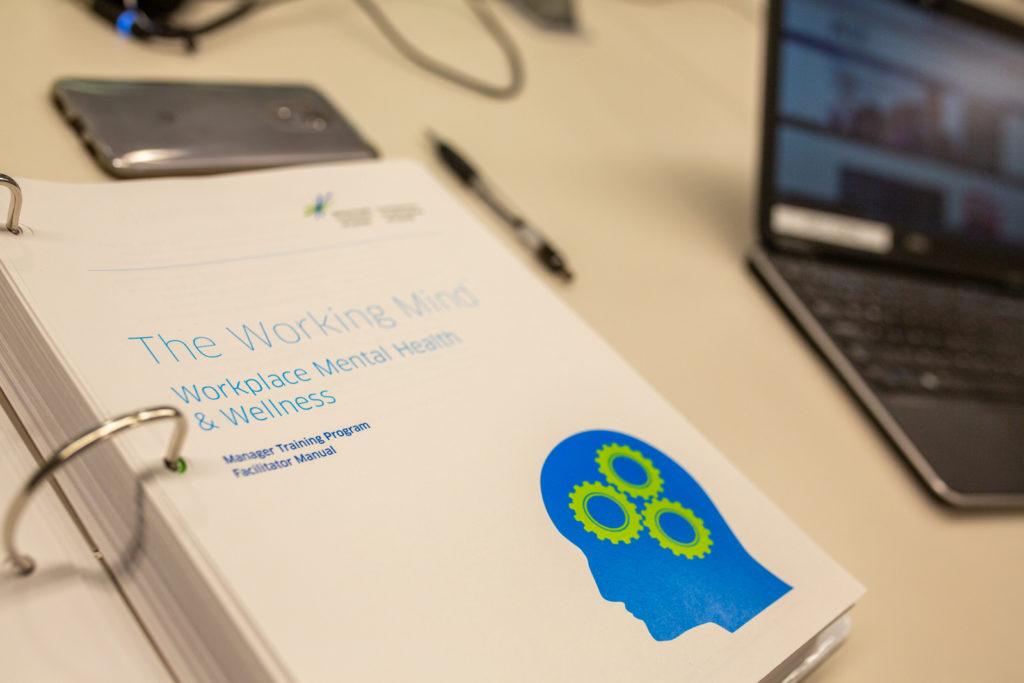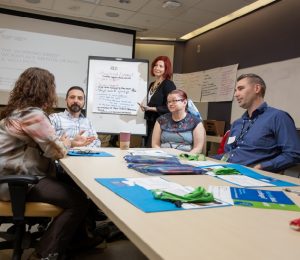
Erasing mental health stigma with The Working Mind
For people struggling with mental health, confiding in others can often be as difficult as battling their illness. This is partly because of the stigma attached to mental illness – the stereotypes that make people vulnerable to prejudice and discrimination. Due to stigma, many people suffer in silence.
“We know that our people are at a higher risk of mental health problems than any other occupational group,” says Lisa Gilmour, manager of health, safety and wellness initiatives at HHS.
She points to research by the Mental Health Commission of Canada (MHCC) that shows healthcare workers are 1.5 times more likely to be off work due to illness or disability than people in other sectors. Chronic stress and burnout are common, and many health workers report a range of conditions related to workplace stress including depression, anxiety, and substance misuse.
Helping colleagues build resilience
To promote mental health, and reduce the stigma of mental illness in our workplace, HHS launched an evidence-based education training program at the Juravinski Hospital and Cancer Centre last November called The Working Mind (TWM). The program was developed by the MHCC and is open to all employees and physicians.

In a small classroom setting, participants gain a broad understanding of mental health and wellness, and ways to build resilience. They learn how to recognize changes in their own mental health and that of others. Through exercises and discussions, they also examine the impact of stigma and discrimination in the workplace, learn how to support colleagues with mental health problems, and use skills to improve their coping and resiliency.
“The goal is to create an environment where mental health is actively promoted, stigma is reduced, and people feel encouraged to seek support when they need it,” says Michelle Cassidy, a healthy workplace coordinator.
“We want to reduce any negativity faced by our colleagues with mental health challenges by encouraging everyone to discuss these issues and help our colleagues seek the support they need.”
Positive results
Results to date show that 97 percent of participants felt they could use the information they learned on the job and in other aspects of their life. Ninety-two percent said that they felt TWM training was important to their role at HHS.
“It was very well done,” said one leader participant. “The material was straightforward, clearly presented, and the inclusion of various tools I think will help everyone in the organization learn from and benefit from the program.”
An employee participant said, “I wasn’t sure what to expect from the session, but what I got blew me away. This education thoughtfully and honestly modelled the purpose of the program itself.”
Watch our video with President and Chief Executive Officer, Rob MacIsaac, to learn more about HHS’ commitment to supporting our people and mental health.
